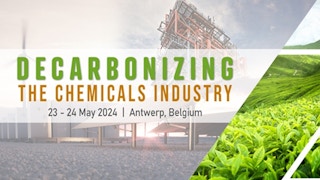
The European chemicals sector aims to achieve carbon neutrality by 2050 as part of the European Green Deal. To do so, the industry needs to adapt on how and what it produces moving forward, while maintaining its competitiveness globally.
Chemical decarbonisation will surely involve reduced resource use, enhancing energy efficiency and electrifying specific processes, more sustainable feedstocks, new renewable energy sources including transitions to hydrogen-based manufacturing or expanding carbon-capture capabilities, product circularity, and overall supply chain efficiency.
This shift could potentially disrupt industry cost structures, with early adopters likely to be better equipped to navigate and absorb impacts associated with the transition. Which solutions offer a cost competitive advantage yet allows companies to meet their net-zero goal?
As concerns around companies’ supply chains grow in importance, transparency around Scope 3 emissions has become a vital issue. To address the Scope 3 challenge and shift the chemical sector’s climate trajectory, Together for Sustainability (TfS) launched the Scope 3 GHG Program, an industry-wide method to monitoring, managing, and reducing emissions across the chemical supply chain. Get an understanding of PCF calculation and methodology standardisation and tools.
It is vital for companies to engage with suppliers to share more transparent data so they can begin to account for emissions reductions along the value chain.
Learn all the above and more at this event.
Hubung Penaja/Peserta Pameran
Media Team
[javascript protected email address]
Publish your content with EB Publishing
It's about who you reach. Get your news, events, jobs and thought leadership seen by those who matter to you.




